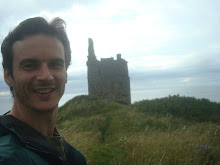- Dalmatians, what's the deal with them? Well, Dalmatians were used since the 19th
century when firemen used horse-drawn trucks. You see, Dalmatians get
along well with horses, are intelligent, and have good stamina. They
were used to chase off the other dogs at fires, and horses could
distinguish them because of - you guessed it - their spots. Plus, who
doesn't like a Dalmatian? Just wook at dem cutey eyeballeys and spotsies, awwww
- What was the first major fire in the colonies?
Get this - no sooner had Jamestown been settled than it is destroyed by
fire in 1609. "For goodness sake, keep the Jedediah away from the
matches!"
- What are some early forms of firefighting? One of the earliest is the good old bucket brigade. Yep, passing buckets back and forth. You see, this was before people sued for breaking a nail, so it worked okay for the time. Another early form was the "hand-tub", which was basically a large wooden tub with a hand pump. How did they keep it filled? Bucket Brigade.

- Fire Hydrants...tell me about them (said with a tweed jacket and pipe in mouth). Well, in the 1600s people would dig holes down to the underground water pipes and use the spewing water in the bucket brigades. They would then plug the holes off. After the great fire of London in 1666, the city installed water pipes with access holes and risers. Humans being somewhat clever now and again, people invented all sorts of interesting caps for these systems which one might call hydrants. Modern fire hydrants began springing up probably around the late 1800s.
- This first volunteer company in America, the Mutual Fire Society, was organized in Boston in 1718. However, they only fought fires at their member’s homes!
- Ben Franklin, why the mention?
When Ben was not fathering the country or seducing French women, he was
a volunteer fireman! He established the Union Fire Company, the first
fire organization in Philadelphia and one of the first in America to
fight fires for the general public.
- When was the match invented?
The first friction match was invented in 1827 by English chemist John
Walker. The first dating match was invented by cave-mother Gogamock who set up her daughter with that "nice boy who hoards the fish-guts"
- Was the 1871 Great Chicago Fire really started by a cow kicking over a lantern? Probably not. However, it did start in a shed around Dekoven St. The cow story was made up by journalist Michael Ahern to make the story "more colorful".
The fire itself killed between 200-300 people, burned 73 miles of
roadway, and left 90,000 people homeless. It was said to have caused
more damage than Napoleon's siege of Moscow.
- Sliding poles? Welllll?
The first sliding poles were installed in 1873 in New York. They were
made of wood, making for some interesting places for splinters.
- Gas Powered firetrucks? Around the 1910s, but they probably came into real prominence in the 1920s. The last horse-drawn engine was retired in New York in 1922. The horses were overheard to say "Hey Mack, itza 'bawt time! Eh?!"
- The 911 Emergency Number - when? In 1968. The company that choose the number? AT&T.
And finally, I leave you with the Maltese Cross:
One
of the symbols most often used by Fire Departments across the world is
the Maltese Cross. The cross was originally used by the Knights of St.
John, who were known for their courage and service to the people. During
battle, the Knights of St. John would often risk their own life
extinguishing the fire-bombs used by their enemies, thus becoming some
of the earliest firemen. The Knights eventually settled on the Island of
Malta, and their symbol become known afterward as the Maltese Cross.
Well, that's enough for now folks. Remember to thank your local fireman for their service, and if you are so inclined, they are always looking for a few good volunteers!



No comments:
Post a Comment